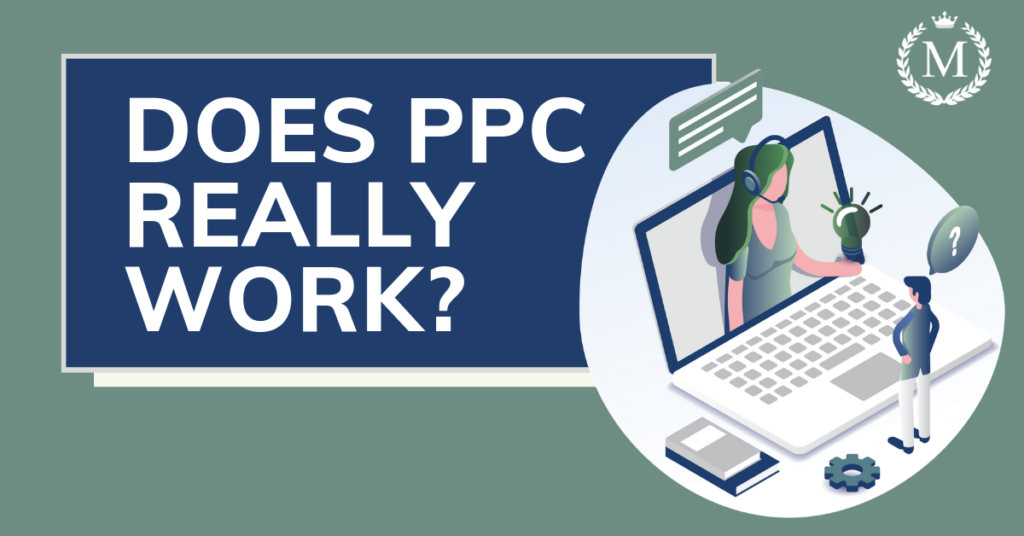Some PPC providers have given PPC a bad rap. Too often we notice companies hesitate to make the commitment to devote budget to PPC due to misunderstanding or past run-ins with ineffective and costly agencies.
We’re writing today to address that perception.
At Megethos, it pains us when someone says “PPC doesn’t really work” because we know that it, in fact, really does. So here’s our stance…
PPC marketing is a powerful tool that is cost-effective and drives real business outcomes. It’s all about how you approach PPC that matters from the beginning. Let’s dive in by looking at what types of strategies make for poor PPC, and the corresponding blueprints we have for turning them around.
4 Reasons Why your PPC is Failing…
1. Your Tracking Isn’t Smart Enough
The first lackluster PPC strategy is having poor tracking quality, or worse, the inability to track performance at all. How can you actually tell whether something has succeeded or failed if you haven’t given it a fighting chance to prove itself?
The result of tracking mistakes or inefficiencies is a deficiency in data on Sales Qualified Leads. By SQL, we mean the types of leads that are most likely to lead to an acquisition. If you are only tracking conversions, and can’t identify which of your PPC leads resulted in real business for your company — then you may not have a PPC problem, it’s more likely you have a tracking problem.
It is difficult to optimize future advertising without having data on the pathways that an SQL has taken prior to conversion. For example, DoubleDutch came to us with a conundrum: how to increase SQLs? One challenge was a complicated data structure that bridged the gaps between multiple CRMs’ data and required us to implement racking across all of their business systems.
By introduced proper tracking, and making the right optimizations for the most qualified leads we were able to increase DoubleDutch’s SQL’s by 300%.
2. You’re Suffocating Ads With Your Budgets
Next, a constrictive budget will make for a restricted PPC campaign.
Without the right level of investment, strategies like A/B testing will likely be out of reach as they require more than one version of each ad to run at once.
An inadequate budget will also restrict the volume of ads and sales, which in turn will reduce the amount of data available and impede the success of the campaign. The good news is that a budget which does allow for testing and volume will be cost-effective in the long run as your CPA (cost per acquisition) is reduced.
This was the experience of one E-Commerce company which came to us asking for a reduction in cost per sale. There was enough volume and room for testing for us to optimize the company’s marketing structure, resulting in a CPS (cost per sale) reduction of 52% and an increase in sales volume of 84%.
It may seem counterintuitive but, sometimes you need to spend more money in initial phases of PPC to build a baseline for optimization — as you can see from the case study, it’s not impossible to seriously cut costs, but you need to start with the data necessary to identify optimization opportunity. Trust the experts, let them work and don’t pull your budgets the first month.
3. Your Content Quality Sucks
Poor content quality sabotages PPC campaigns all the time. The keywords can be accurate and the ad copy can be brilliant, but if the landing page is vague or confusing the ad will be ineffective.
For example, if someone clicks on an ad for water bottles, and lands on the distributor’s page for “All Gift Items,” then that person is less likely to make a conversion due to the difficulty they experience finding water bottles on that page. At Megethos, we ensure content quality by continuously A/B testing our landing pages, driving up conversion rates. We also partner with our customers to make recommendations on the content we need to see successful campaigns.
4. You’re Not Delivering Value
Ads that don’t deliver value won’t make money. People want to know that your offer is valuable to them. You can make this clear by tailoring your offer to your audience using techniques like urgency-driven CTAs: “Only 6 items left in stock!”
Your customers will feel the need to buy before your item is sold out. Similarly, copy like “Apply your 20% Member’s discount!” lets people know that the value of the offer is exclusive to them, which makes them more likely to convert. Any PPC campaign using these types of ads will have a distinct advantage over a campaign that doesn’t.

So, Does PPC really Work?
In Short: yes, it really does. But, only if you’re doing it right. So please, stop lighting your money on fire.
Although the impression that PPC marketing is faulty exists, it’s really the faulty application of PPC that creates this impression. Used properly, PPC is a powerful tool that can improve your marketing metrics.
You’ll find experts at Megethos who are thoroughly acquainted with the principles of making PPC work. From our expert tracking ability to our tried and true A/B testing method for copy and content, we’ve got the tools to make PPC a vital addition to your marketing strategy.
Get a Free 50-Point PPC Audit and cease the budget bonfire today.

















